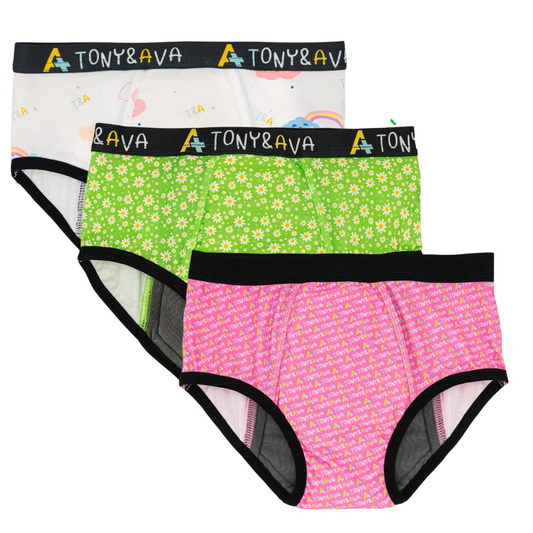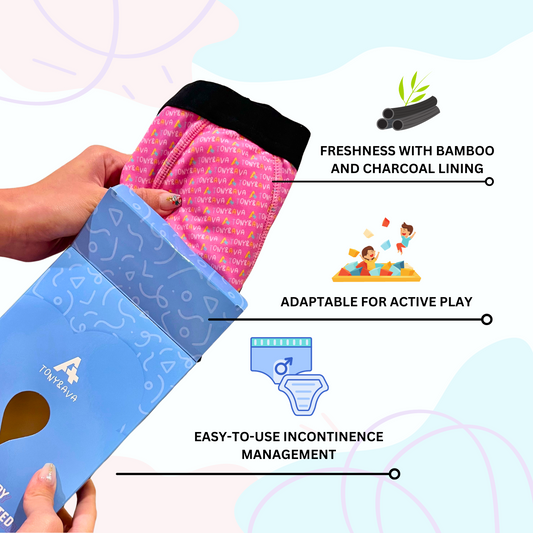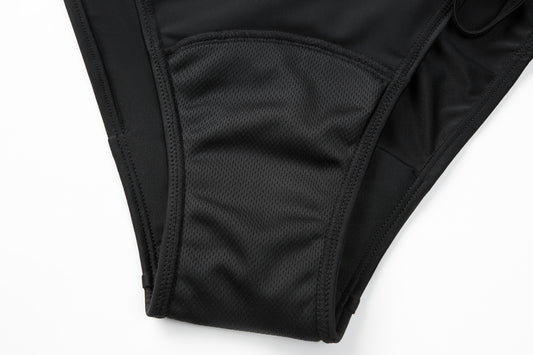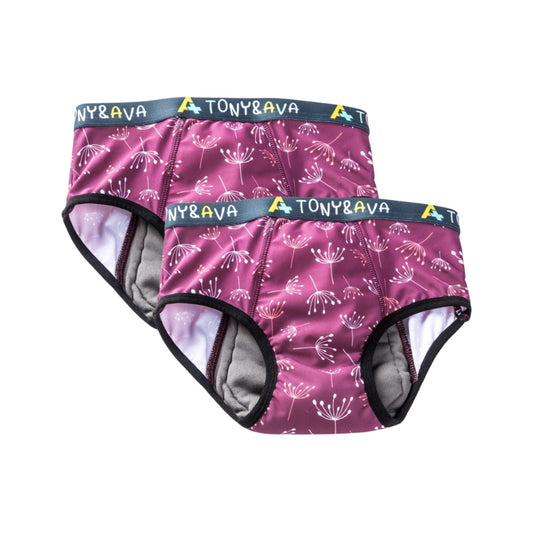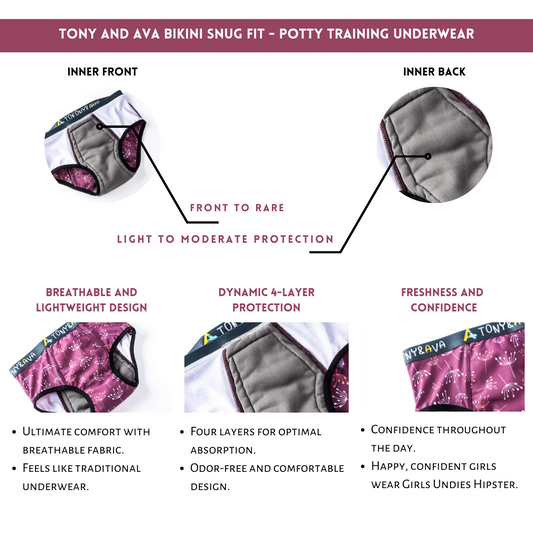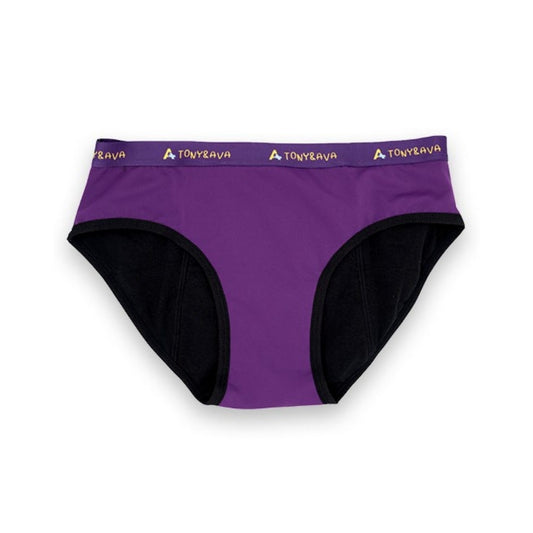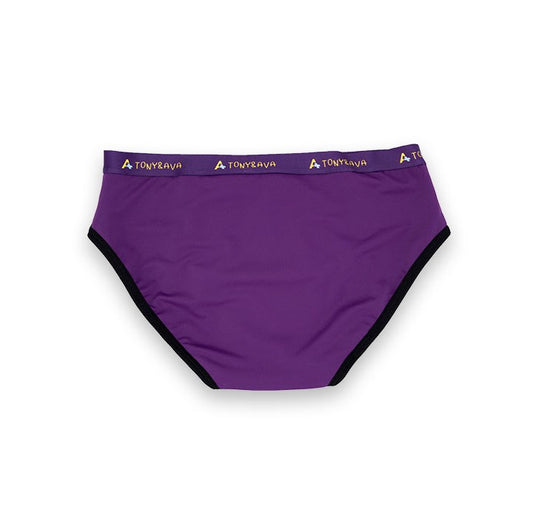Congratulations! You feel that your child is ready to potty train, and you are dreaming of ditching that diaper bag and moving on to bigger and better things in life than changing endless diapers. You have bought the training potty, incontinence underwear, and rewards. It is go time...or is it? For some reason despite being ultra-prepared, your child’s journey to dryness is not going quite as smoothly as you imagined.
Potty training a child who doesn’t want to or is just not getting the hang of toileting can cause a frustration level with your little one that you didn’t know existed. They should love being free of diapers and in big kid underwear, but some kids just don’t care what we adults want. Many parents have been there, including many of us at Tony and Ava. That is why we are here today with some friendly tips to help you know what to do when your potty training kid keeps having accidents.
First of all, let’s talk about the statistics. There is good news, and this is that up to 60% of children do achieve full toilet training by the age of 3. So, this means that there is most likely a light at the end of the tunnel of endless diapers. We should note, however, that approximately a quarter of children will still have accidents at the age of 5. Several reasons may be the culprit for such accidents. These include fear of using public or school restrooms, constipation, lack of exercise, and/or poor eating habits.
There are some helpful ways to help combat this problem of potty training a child who doesn’t want to or is having difficulty. These can help your child find toileting success moving forward. Let’s take a closer look at some of the most common factors.
- Diet
One of the most common causes of accidents is constipation. This is often a result of a poor diet that is lacking in fiber and hydration. A child should be consuming enough grams of fiber that those equal your child’s age plus 5. This means a 3-year-old should be getting approximately 8 grams of fiber each day. This can be accomplished by giving your child foods fortified with fiber or even having them take a gummy fiber supplement. As you increase your kiddo’s fiber intake, be sure to increase their fluid intake as well, otherwise, they could end up more constipated than when they began.
- Posture
This potty posture is very frequently overlooked but is a very important component of allowing your child to experience potty training success. The correct posture for toileting is one where your child’s knees are bent and positioned slightly above their hips. This can be accomplished by having them use a stool or squatty potty under their feet. Once their legs are positioned, they should lean forward while resting their forearms on their knees and breathe out slowly using a syllable like “shhh.” You can even give them a straw and tell them to exhale through the straw.
- Schedule
Being mindful of what is considered normal for your child’s age can help you lessen the frequency of accidents. Children 2 and under typically void every 1-2 hours, whereas older children only need to use the bathroom 5-7 times a day. Additionally, your child should be having at least one bowel movement every other day. If your little one is having frequent accidents, begin journaling to see if you can see any patterns. Notate the time of the accident, what type of accident it was, what the child consumed food-wise, and if they reported pain or discomfort. This information can be helpful to you and also your pediatrician if they need to be consulted.
- Exercise
Children who have weak muscles, poor posture, and lack of breath control often struggle with accidents. Making sure that they are getting enough exercise can help strengthen the core muscles responsible for these actions and in turn lessen or eliminate accidents.
If you are addressing the areas mentioned above and still find that your child is having frequent accidents or being stubborn, remember to stay calm and be patient. Stick to a regimented toileting schedule and reward successes. Don’t make a big deal about or shame your child for accidents. Purchase several pairs of great incontinence underwear like the ones offered at Tony and Ava to make accidents easy to clean up after, and most importantly, don’t give up hope. Your child will be successful at toilet training and soon enough you’ll be ditching those diapers forever.
